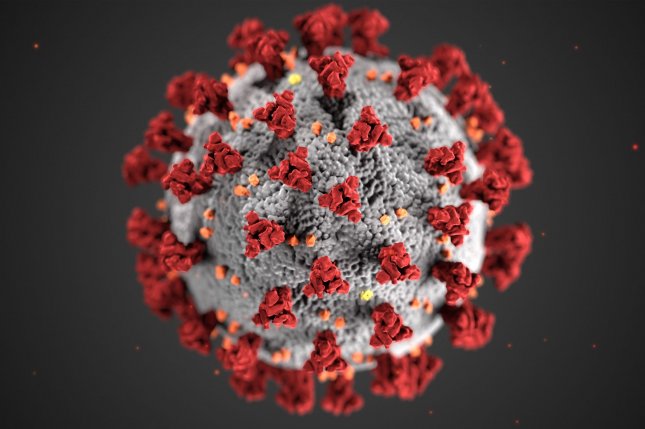April 6 (UPI) — COVID-19 causes widespread inflammation in the bodies of those infected by killing off two types of immune cells found in the blood and lungs, according to an analysis published Wednesday by Nature.
The immune cells in the blood, or monocytes, and act as early responders to any form of infection, and those in the lungs, which known as macrophages, die as a result of a process called pyroptosis, which leads to severe inflammation in multiple organs, the data showed.
In addition, natural immune cells, or antibodies, developed by the body after infection with the virus that causes COVID-19 may actually generate more inflammation, the researchers said.
This may explain why treatment using monoclonal antibodies or blood plasma from infected people who develop natural antibodies works only when it is given early after diagnosis, they said.
However, antibodies produced after a COVID-19 vaccine do not have a similar effect, according to the researchers.
“It may be that later on, antibodies may help enhance inflammation,” study co-author Dr. Judy Lieberman said in a press release.
“We may need to look at the properties of the antibodies,” said Lieberman, a professor of pediatrics at Harvard Medical School in Boston.
COVID-19 is known to cause inflammation in the heart, lungs, digestive tract, brain and kidneys of those infected, particularly those who develop severe symptoms, according to the Centers for Disease Control and Prevention.
The findings of this study are based on an analysis of fresh blood samples collected from patients with COVID-19 treated in the emergency room at Massachusetts General Hospital.
The researchers compared these samples with those collected from healthy people and patients with other respiratory conditions and also looked in lung autopsy tissue from people who had died from COVID-19, they said.
In infected patients, about 6% of blood monocytes are killed due to inflammatory death, the data showed.
This is a “large number to find, because dying cells are rapidly eliminated from the body,” Lieberman said.
In addition, based on the lung tissue of people who died from COVID-19, about 25% of lung macrophages experience a similar death, the researchers said.
About 10% of blood monocytes and 8% of lung macrophages collected from patients with COVID-19 were infected with the virus, they said.
The researchers described this finding as surprising, given that monocytes do not carry ACE2, the protein the virus uses to gain entry into and infect cells, and macrophages have low amounts of it.
Monocytes carrying a receptor called CD16 were especially likely to be infected, the researchers said.
In most healthy people, only about 10% of monocytes have CD16 receptors, However, patients with COVID-19 had more of them, researchers said.
The CD16 receptor appears to recognize antibodies against the virus, but these antibodies actually cause the cells to be infected. Conversely, when the team studied healthy patients who had been vaccinated against COVID-19, the antibodies they developed did not appear to facilitate infection, they said.
It is possible vaccine-generated antibodies have slightly different properties than antibodies that develop during infection and do not bind as well to the CD16 receptor, according to the researchers.
“The antibodies coat the virus, and cells with the CD16 receptor then take the virus up,” said Lieberman, who chairs the Program in Cellular and Molecular Medicine at Boston Children’s Hospital.
“In some ways, uptake of the virus by these ‘sentinel’ cells … but the bad news is that all these inflammatory molecules get released — in people who are more prone to inflammation, such as the elderly, [and] this can get out of control,” she said.
